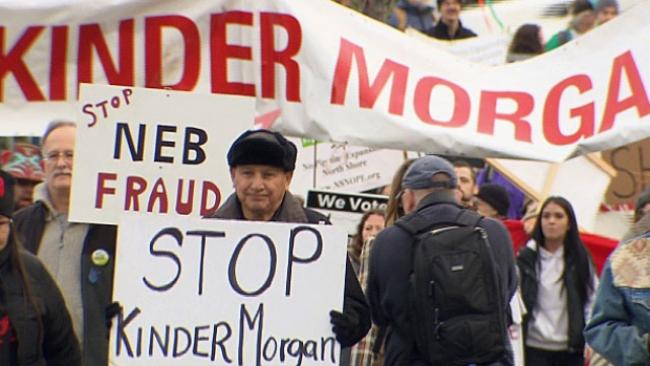Articles Menu

Listen to the full conversation.
Prime Minister Justin Trudeau expressed high hopes for the newly-approved Kinder Morgan Trans Mountain pipeline this week. But Jeff Rubin has been crunching the numbers and according to him, the promised economic benefits of the pipeline don't add up.
Rubin, a senior fellow at the Centre for International Governance Innovation and former chief economist at CIBC World Markets, explained his skepticism in an interview with The Current's guest host Kelly Crowe.
One of the main selling points of the pipeline has been that it will give Canadian bitumen access to Asian markets. But according to Rubin, the economic advantage of selling oil to Asia has been over-stated.
"The reality is that Asian markets pay less, not more, for the bitumen that Canada wants to sell than U.S. refineries," he told Crowe.
Rubin pointed to Mexican Maya Crude, saying the product, which is similar to oil sands crude, sells for $8 per barrel less in Asian markets than American markets.

Kinder Morgan wants to expand its Trans Mountain pipeline from Alberta to the B.C. coast. (CBC)
At such low prices, the revenue that Canadian oil sands companies would gain from selling their oil to Asia wouldn't be worth the cost of extraction, he said.
Not only is it economically unwise now, he added, but it always will be.
The effect on the environment
"There's even less of a business case in the future than there is today," he said. "Not if Canada and 170 other countries come even remotely close to living up to their pledge to hold global climate change to one-and-a-half to two degrees."
The notion of building an oil pipeline while trying to reduce greenhouse gas emissions, Rubin said, is "akin to having your foot on the brakes and the accelerator at the same time."
The effect on job creation
Ian Anderson, the president of Kinder Morgan Canada, disputed Rubin's view in a call with media earlier this week, saying the pipeline would create "thousands of good-paying middle-class jobs for Canadians" as well as bringing tax benefits "to all levels of government."
Asked to respond, Rubin suggested Anderson's view was short-sighted.
"If in fact it's built, I don't deny that the construction of a new pipeline will be a short-term job creator," he said. "But if that ends up being a stranded asset, that's not going to be an engine of economic growth. That's an albatross around the economy."
Listen to the full conversation.
This segment was produced by The Current's Lara O'Brien.
[Top photo: Grand Chief Stewart Phillip of the Union of B.C. Indian Chiefs leads a protest against expansion of the Kinder Morgan Trans Mountain pipeline on Jan. 19, while National Energy Board hearings continue in Burnaby. (CBC)]